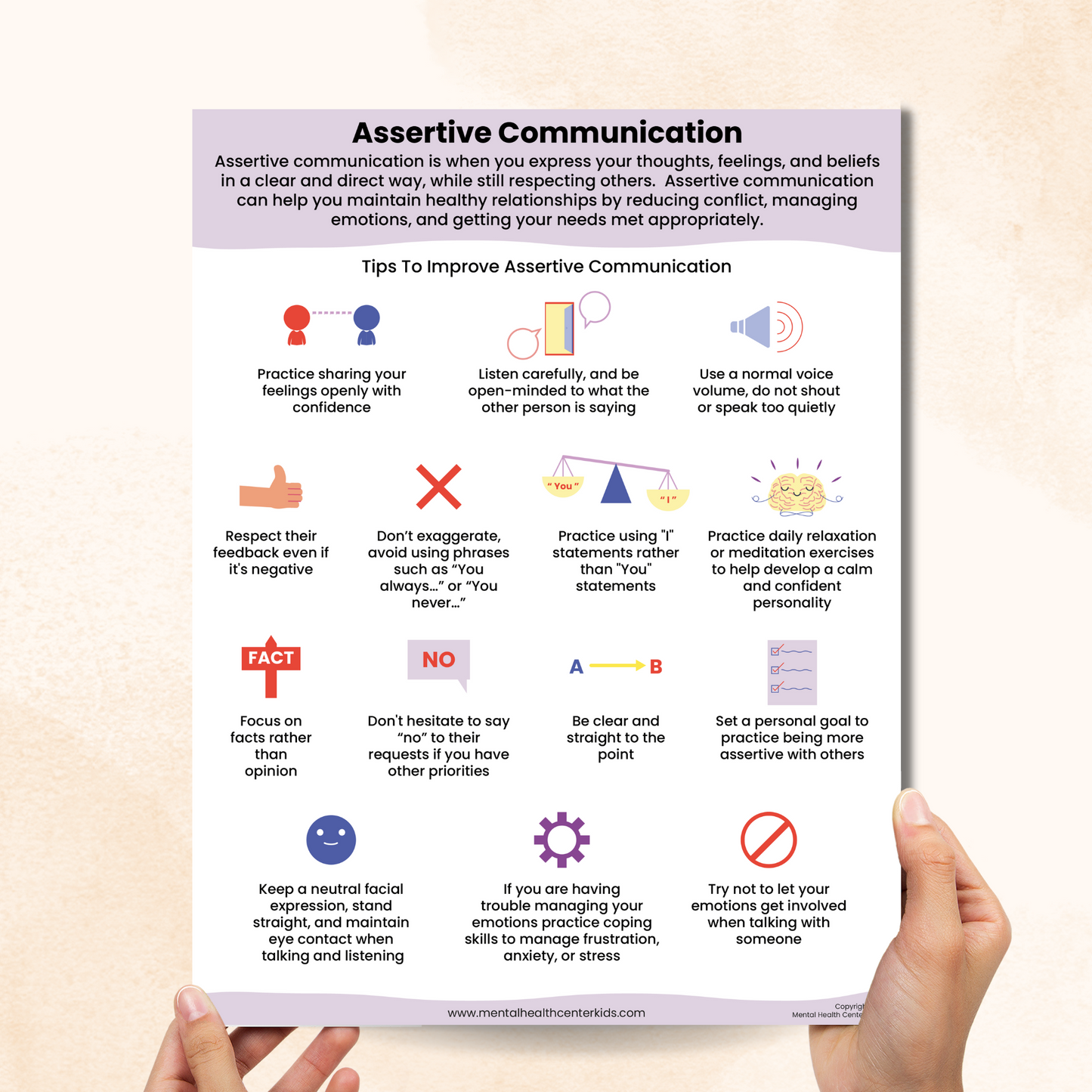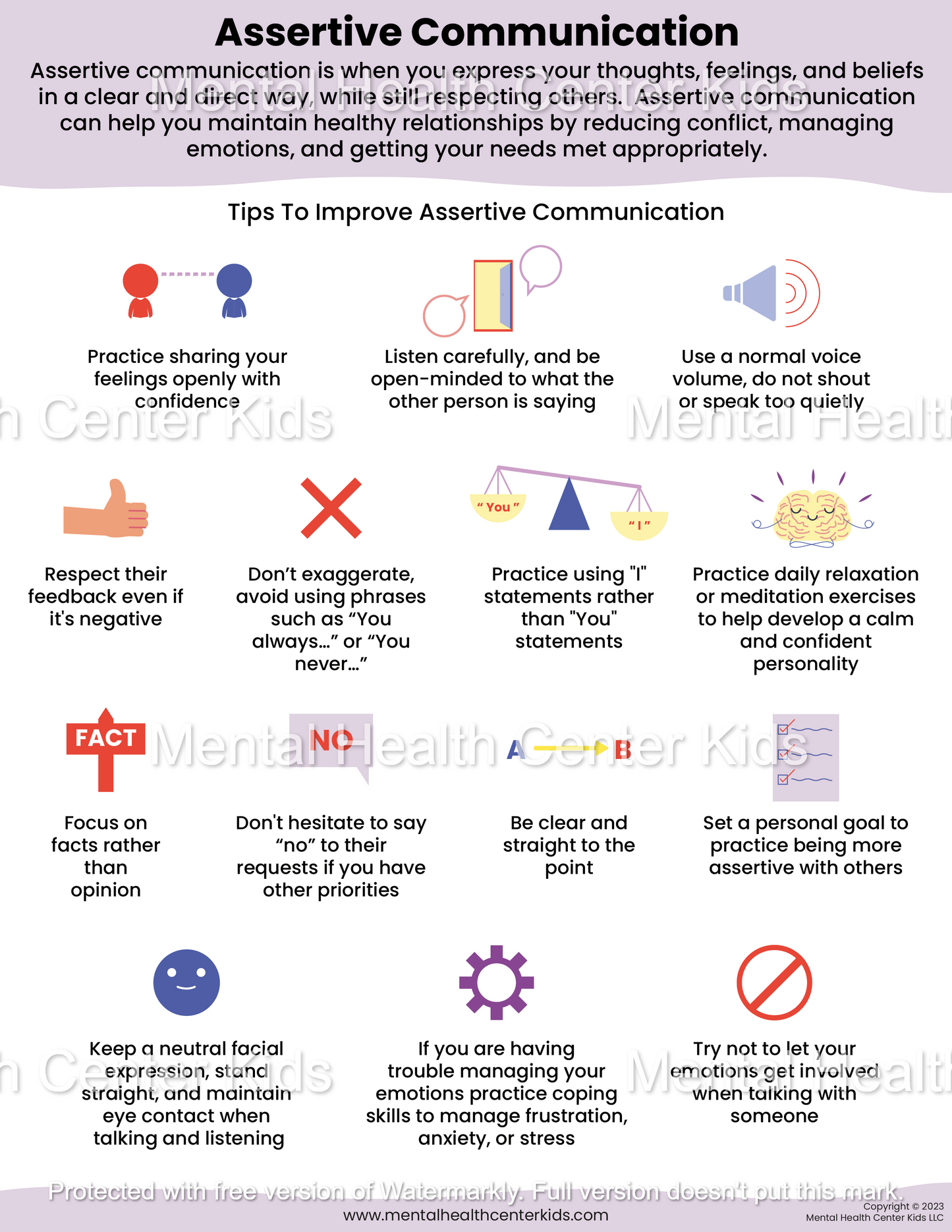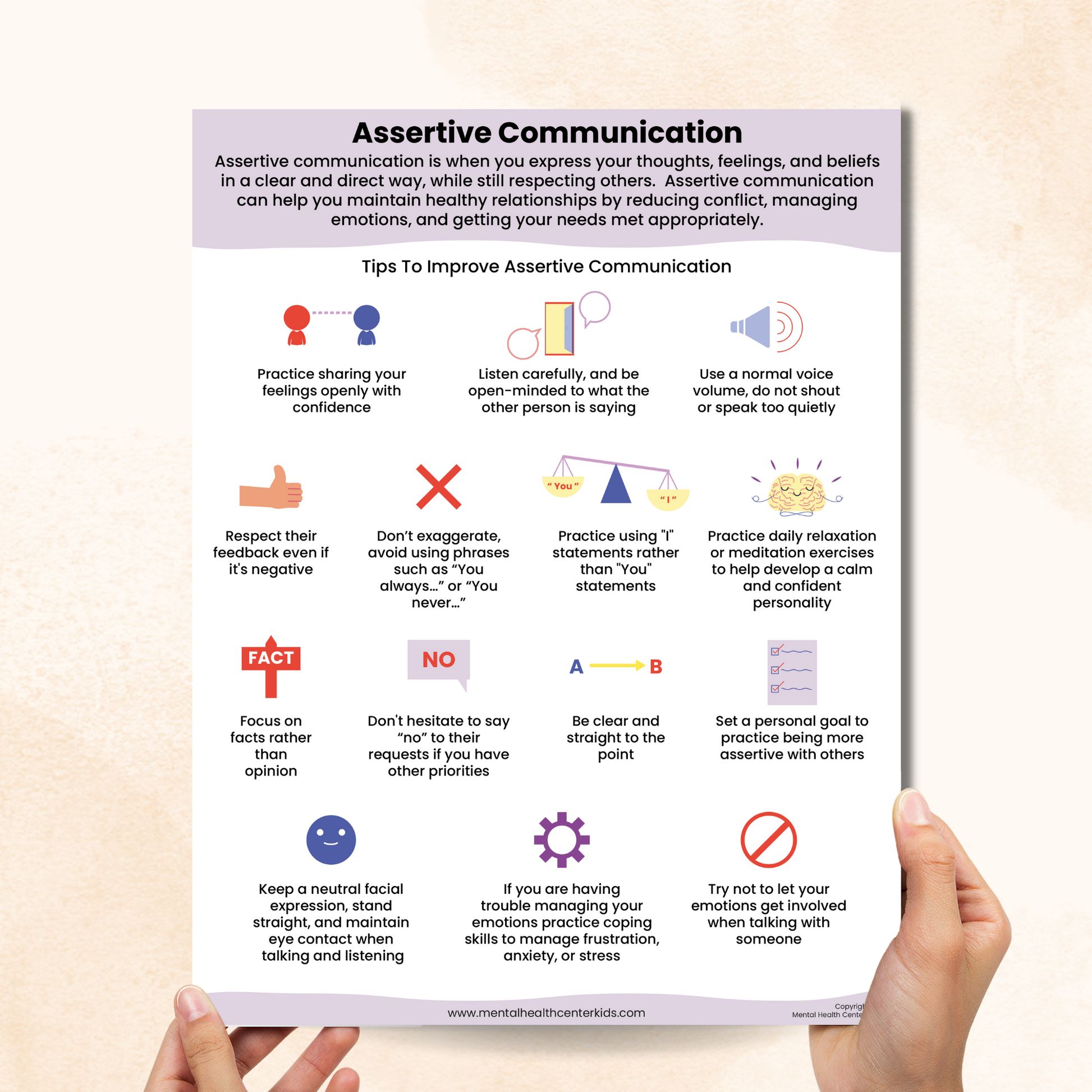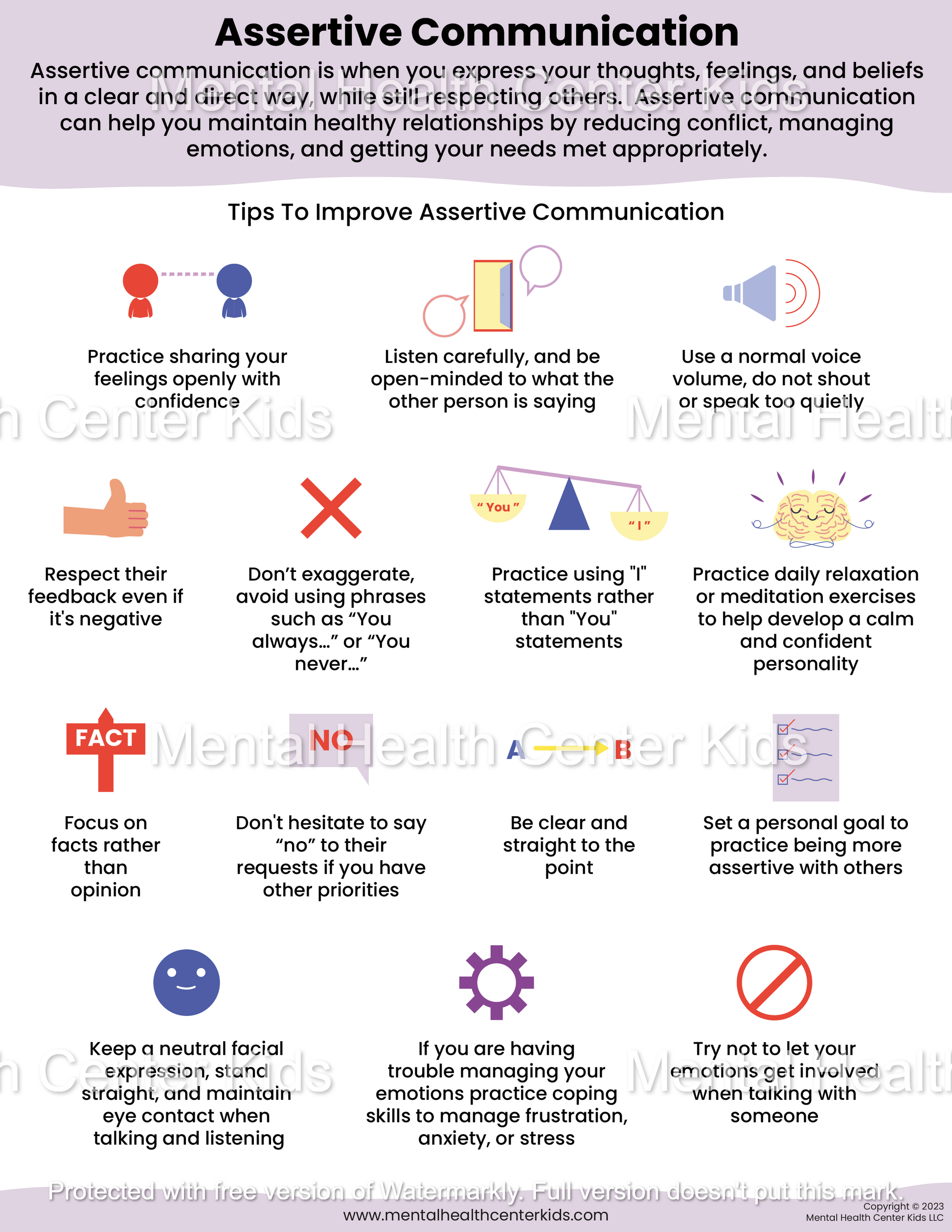Assertiveness Skills



Being assertive means sharing thoughts and feelings confidently and respectfully while standing up for oneself and others. Many clients may struggle with assertiveness due to fear of judgment, peer pressure, or a lack of confidence. However, research shows that with the right support and practice, they can develop these skills effectively.
The Assertiveness Skills handout helps clients express their needs and feelings clearly. It offers simple tips for better communication, like listening carefully, speaking calmly, and respecting others’ opinions, along with easy examples for everyday situations.
Using this handout helps kids and teens manage conflicts and reduce anxiety in social settings, which leads to more respectful interactions. Caring adults can support this process by facilitating role-playing activities where young people can practice being assertive. They can also encourage them to recognize when they feel unheard and guide them in adjusting their approach to communicate more effectively.
This handout nicely complements our Assertive Communication Worksheets.
*This item is an instant digital download. A link to download your files will be emailed to you once payment is confirmed.
Want more resources like this? Check out our full catalog of social skills worksheets and handouts.
References:
- Eslami, A. A., Rabiei, L., Afzali, S. M., Hamidizadeh, S., & Masoudi, R. (2015). The Effectiveness of Assertiveness Training on the Levels of Stress, Anxiety, and Depression of High School Students. Iranian Red Crescent Medical Journal, 18(1). https://doi.org/10.5812/ircmj.21096
- V.sahaya sheeba, C. Babitha Christobel, F. Malchijah, & Santhi Appavu. (2022). Effectiveness of assertiveness training programme on improving self- Esteem among early adolescents. International Journal of Nursing Education, 14(4), 106-108. https://doi.org/10.37506/ijone.v14i4.18693
- Instant digital download
- File: PDF
- Size: 8.5" x 11"




